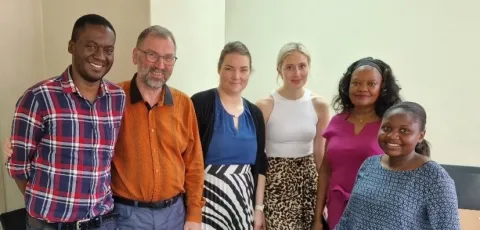
The University of Iceland’s Faculty of Pharmaceutical Sciences will collaborate with the Pharmacy Department at Kamuzu University of Health Sciences (KUHeS) in Malawi in graduate studies. KUHes has been in the process of developing graduate studies in pharmaceutical sciences over the last few years. However, a milestone was reached in this development when Ms. Tadala K. Phiri was accepted for a two year M.Phil by the Pharmacy Department. Her studies will be a joint venture between the department at KUHeS, the faculty of pharmaceutical sciences at the University of Iceland, as well as two Icelandic companies; Hananja, a pharmaceutical company, and Capretto, a medical device company.
Tadala’s project focuses on methods to identify fungal strains that cause fungal skin infections using a small device called Raman. Raman is a laser-based technology, comparable to laser thermometer. The goal is to set up a simple method to identify strains responsible for fungal infections in the Malawian town, Mangochi. After that she will test natural compounds found in human breast milk, to determine their ability to eliminate fungal infections. Human breast milk has an amazing ability to kill pathogenic viruses, bacteria, and fungi. Part of that work will be carried out at Mangochi District Hospital and a part of the study programme will be carried out at the University of Iceland.
The project will partly be funded by an Erasmus+ grant, which facilitates student and teacher exchanges between the two universities. The project also receives support from Hananja.
Ms. Phiri’s supervisors are Mrs. Frider Chimimba, Dr. Baxter H. Kachingwe at KUHeS, and Dr. Helga Helgadottir, Dr. Ingibjorg Hilmarsdottir, and Dr. Sveinbjorn Gizurarson at the University of Iceland.